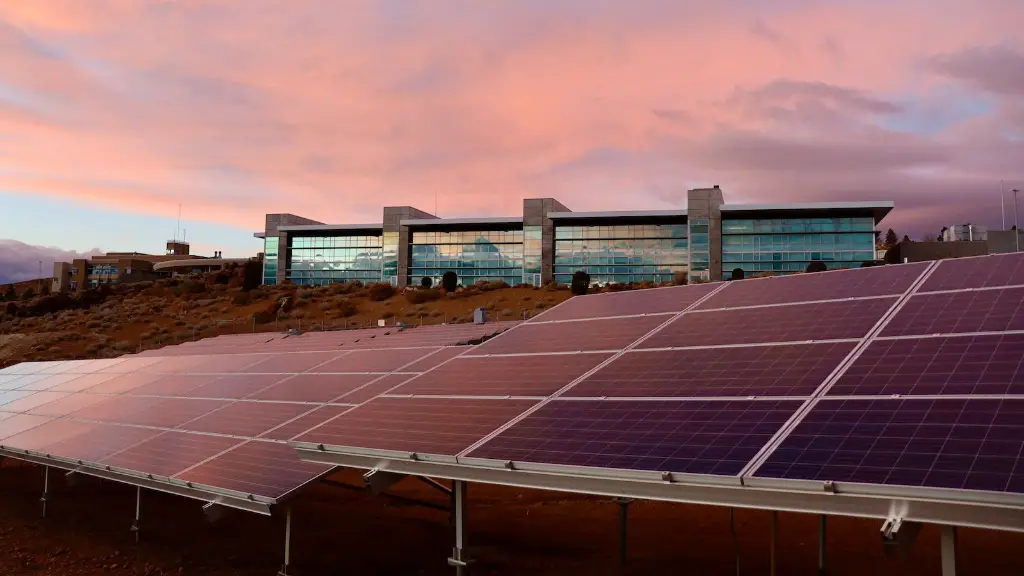The Earth’s surface temperature is rising due to the presence of greenhouse gases such as carbon dioxide, methane and nitrous oxide. These gases absorb the heat radiating from the sun and trap it within the Earth’s atmosphere, thus steadily increasing the global temperature. This phenomenon is known as global warming. Oceans play an essential role in regulating global warming as they absorb a significant percentage of the heat that is trapped in the atmosphere. Not only do they actively prevent further rise in temperature, they also help combat climate change by releasing energy back into the atmosphere over time.
The ocean absorbs an estimated 25% of the annual emissions of carbon dioxide generated by human activities on land. It functions as a natural thermostat, as the ocean holds 50 times more carbon than the atmosphere. As carbon dioxide dissolves in the ocean, a chemical reaction occurs and forms carbonic acid, thus lowering the surface temperature by way of a process known as ocean acidification. This process is facilitated by the water cycle, whereby water evaporates from the ocean and is returned to the ocean in the form of precipitation. As the water cycle continues, the water absorbs and stores the heat, thus regulating the temperature.
In addition to these processes, the ocean’s vast surface area helps to dissipate heat from the atmosphere. This is achieved through evaporation, wherein heat is released and temperatures are lowered as water evaporates from the ocean surface. Furthermore, the ocean serves as a natural buffer and regulates fluctuations in temperatures. Heat is stored during the summer months, which prevents sudden spikes in temperatures and guards against extreme weather conditions. In this way, the ocean serves as a stabilizing force by ensuring that temperatures rise and fall at a gradual rate.
However, oceans are not the only factor that can have an impact on the climate. Factors such as deforestation, industrialization and air pollution also influence the global climate by directly emitting carbon dioxide and other greenhouse gases. If these activities go unchecked, they could further increase Global Warming, as the capacity of oceans to absorb carbon dioxide becomes limited, leading to a decrease in their capacity to moderate temperatures.
It is, therefore, essential for all nations to reduce their dependence on carbon-based fuels and shift to renewable sources of energy. Additionally, public education campaigns should be implemented to promote public awareness about climate change and the remedial measures that can be taken to reduce its effect. All countries must demonstrate their commitment to tackling Global Warming through policies and actions that can help reduce the amount of carbon dioxide released into the atmosphere. By taking meaningful action such as conserving natural resources and forestation, the ocean’s capacity to regulate global warming can be increased.
In conclusion, oceans play an essential role in regulating global warming, which is why it is essential that they be protected and preserved. The atmospheric levels of carbon dioxide can be reduced through the adoption of sustainable practices. It is up to us to act now and ensure that our oceans are healthy to mitigate climate change and protect the planet from further warming.

